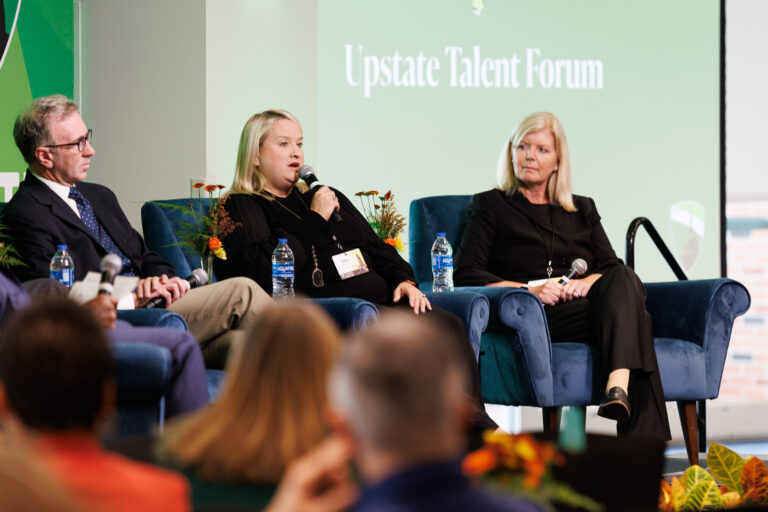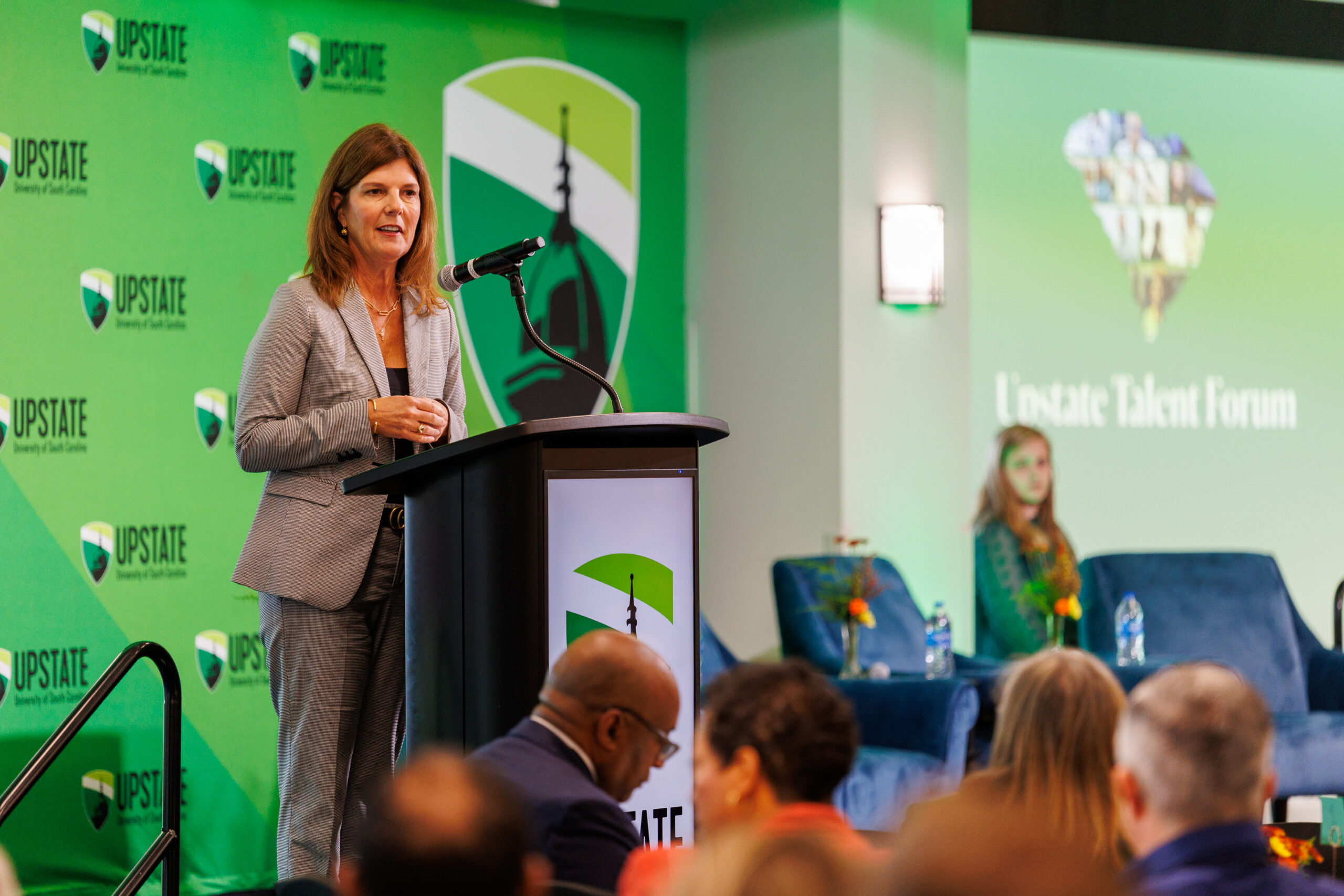
The Upstate region has experienced significant economic growth during the past decade—$20 billion of capital investment and 55,000 new jobs, according to Upstate Alliance SC.
That may not seem like a problem. But experts say this growth combined with other factors, such as rapid advancements in technology, have put a major strain on many regional employers seeking highly skilled workers.
On Wednesday, Oct. 11, about 150 business, academic, and legislative leaders gathered at USC Upstate for the university’s first Upstate Talent Forum to strategize on building robust workforce pipelines that will help close the talent gap and ensure future success for the Upstate and South Carolina.
“We think that it’s a problem we face here, but in speaking with my colleagues all over the country, it’s clear that this is a shared problem,” said S.C. Lt. Gov. Pamela S. Evette. “We need to make sure that we close the skills gap; that we have the workforce of tomorrow.”
Since 2013, unemployment in the Upstate has decreased almost 49% and the average weekly wage has increased by nearly 35%, according to Upstate Alliance SC data. Job openings across the state have jumped more than 200% during that period, but hiring has only grown by about 30%, according to the S.C. Department of Employment and Workforce (DEW).
While the opportunities for employment have increased, leaders say many Upstate employers are still having difficulties filling their ranks with qualified employees.
On the academic side, leaders are concerned that college students, particularly those who are economically disadvantaged, are less likely to have access to career-relevant employment while in school. Overall, students need to learn how to adapt to workforce changes that will likely occur after they graduate.
“It’s the right conversation at the right time,” said Seth Blanton, district director for U.S. Rep. William Timmons, R-SC.
During the forum, attendees enjoyed two informative panel discussions led by co-conveners Carlos Phillips, president and CEO of the Greenville Chamber of Commerce, and Allen Smith, president and CEO of OneSpartanburg Inc.
The first discussion, moderated by Phillips, focused on what industry leaders think and the actions that some companies are taking to adapt and recruit qualified employees. The panelists included David Lominack, S.C. Market President for TD Bank, Phil Feisal, president of Spartanburg Regional Healthcare System and Spartanburg Medical Center, Sara Hazzard, president and CEO, of the S.C. Manufacturers Alliance, and Sherry McCraw, vice president of human resources for BMW Manufacturing Co.
“In health care, a storm is brewing,” Feisal said. “South Carolina is a Top 5 inbound state… We’re also a Top 5 nursing shortage state… Our population is aging and we’re aware of that. About 100,000 nurses left the industry during (the COVID-19 Pandemic). It’s going to be a hard journey, but we think we can satisfy our workforce needs.”
Panelists stressed the need for employers to provide flexible schedule and training for employees who work remotely. They also spoke in support of training, partnerships with schools and colleges, internships and apprenticeships, and the need for workers with “soft” skills.
The second panel, moderated by Smith, focused on legislative support for preparing South Carolina college students for the future. The group included Rusty Monhollon, president and executive director of the S.C. Commission on Higher Education, William Floyd, executive director of the S.C. DEW, S.C. Rep. Max Hyde, R-Spartanburg, and Russell Booker, Ph.D., CDE, and CEO of the Spartanburg Academic Movement.
Part of the conversation centered on legislation known as “Act 67 of 2023,” which was signed into law earlier this year. The law expanded the Coordinating Council for Workforce Development to include additional public and private workforce development stakeholders and provided other ways to optimize the state’s workforce.
“We have more people working in South Carolina than ever before,” Floyd said. “The opportunity is greater than ever before.”
Participants then broke out into groups to look at how to bridge the skills gap; ways that business and education can partner; how to build effective mentorship programs; how to create inclusive work environments; the future of continuing education; and how to make on-the-job training more effective.
USC Upstate hopes to make the forum an annual event for the next three years and continue the conversation.
“I think it was a wonderful way to get everyone together,” said Jack McBride, CEO of Contec Inc. “We share a lot of similar challenges. This was a very good, productive discussion.”
“We had the right leaders here today and we covered all of the bases,” Jeffrie Berline, an entrepreneur and director of business development for the staffing and recruiting firm LOOP. “It really gave me a sense of the long-term, big picture goals for talent development and retention in the Upstate and South Carolina.”
“We are delighted to bring together leaders who share a common vision for a robust talent pipeline,” said USC Upstate Chancellor Bennie L. Harris, Ph.D. “USC Upstate is uniquely positioned to lead this conversation. The Upstate Talent Forum marks a significant step forward, and we extend our heartfelt gratitude to all who participated. Together, we are laying the foundation for a stronger, more prosperous Upstate and South Carolina for generations to come.”

For additional photos, please visit: https://flic.kr/s/aHBqjAY67X

